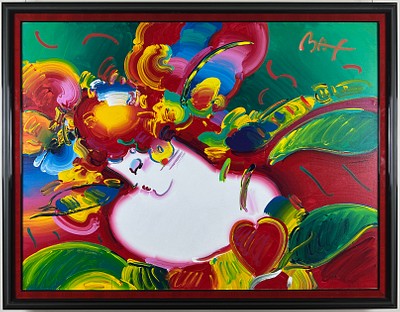Fidel Castro "Untitled" Print
Lot 635
Categories
Estimate:
$400 - $600
Absentee vs Live bid
Two ways to bid:
- Leave a max absentee bid and the platform will bid on your behalf up to your maximum bid during the live auction.
- Bid live during the auction and your bids will be submitted real-time to the auctioneer.
Bid Increments
| Price | Bid Increment |
|---|---|
| $0 | $5 |
| $100 | $10 |
| $200 | $20 |
| $1,000 | $50 |
| $5,000 | $100 |
| $10,000 | $200 |
About Auction
By Scottsdale Art Exchange
Jul 29, 2023
Set Reminder
2023-07-29 12:00:00
2023-07-29 12:00:00
America/New_York
Bidsquare
Bidsquare : Our Annual Midsummers Day Auction
https://www.bidsquare.com/auctions/scottsdale-art-exchange/our-annual-midsummers-day-auction-13196
This auction will feature 900 amazing items. The Auction will include 300 items for our fine art gallery and over 600 items from our consignment partners. Scottsdale Art Exchange sue@firerockfineart.com
This auction will feature 900 amazing items. The Auction will include 300 items for our fine art gallery and over 600 items from our consignment partners. Scottsdale Art Exchange sue@firerockfineart.com
- Lot Description
Fidel Castro, born on August 13, 1926, in Birán, Cuba, was a Cuban revolutionary, politician, and statesman who served as the Prime Minister of Cuba from 1959 to 1976 and then as the President of the Council of State and the President of the Council of Ministers from 1976 to 2008. He was one of the most prominent figures in 20th-century world politics. Castro played a crucial role in the Cuban Revolution, which successfully overthrew the U.S.-backed regime of Cuban dictator Fulgencio Batista in 1959. As the leader of the 26th of July Movement, Castro, along with his brother Raúl Castro and revolutionary icon Ernesto "Che" Guevara, fought against Batista's government and established a socialist state in Cuba. After coming to power, Castro implemented a series of socialist and communist policies, nationalizing industries and redistributing land and wealth. His government pursued policies aimed at achieving social equality, improving education and healthcare, and reducing poverty in Cuba. However, these policies also limited political freedoms and led to restrictions on individual liberties. Castro's government faced significant challenges, including the Bay of Pigs invasion, an unsuccessful U.S.-backed attempt to overthrow his regime in 1961. This event further strained relations between Cuba and the United States, leading to the Cuban Missile Crisis in 1962, a tense standoff between the two superpowers that brought the world to the brink of nuclear war. Throughout his leadership, Castro faced criticism for human rights abuses, suppression of political dissent, and lack of democratic processes. His government was characterized by a one-party system, with the Communist Party of Cuba maintaining a monopoly on political power. Castro stepped down from the presidency in 2008 due to health concerns, handing over power to his brother Raúl Castro. He passed away on November 25, 2016, in Havana, Cuba. Fidel Castro's legacy remains a subject of debate and controversy. Supporters view him as a champion of anti-imperialism and social justice, while critics point to his autocratic rule and human rights record. His impact on Cuban and international politics is undeniable, and his influence shaped Cuba's trajectory for over five decades.
Measures 24 x 30.Good condition. No rips, tears, creases.Condition
- Payment & Auction Policies
-
Available payment options
-
-
- Buyer's Premium



 EUR
EUR CAD
CAD AUD
AUD GBP
GBP MXN
MXN HKD
HKD CNY
CNY MYR
MYR SEK
SEK SGD
SGD CHF
CHF THB
THB



















